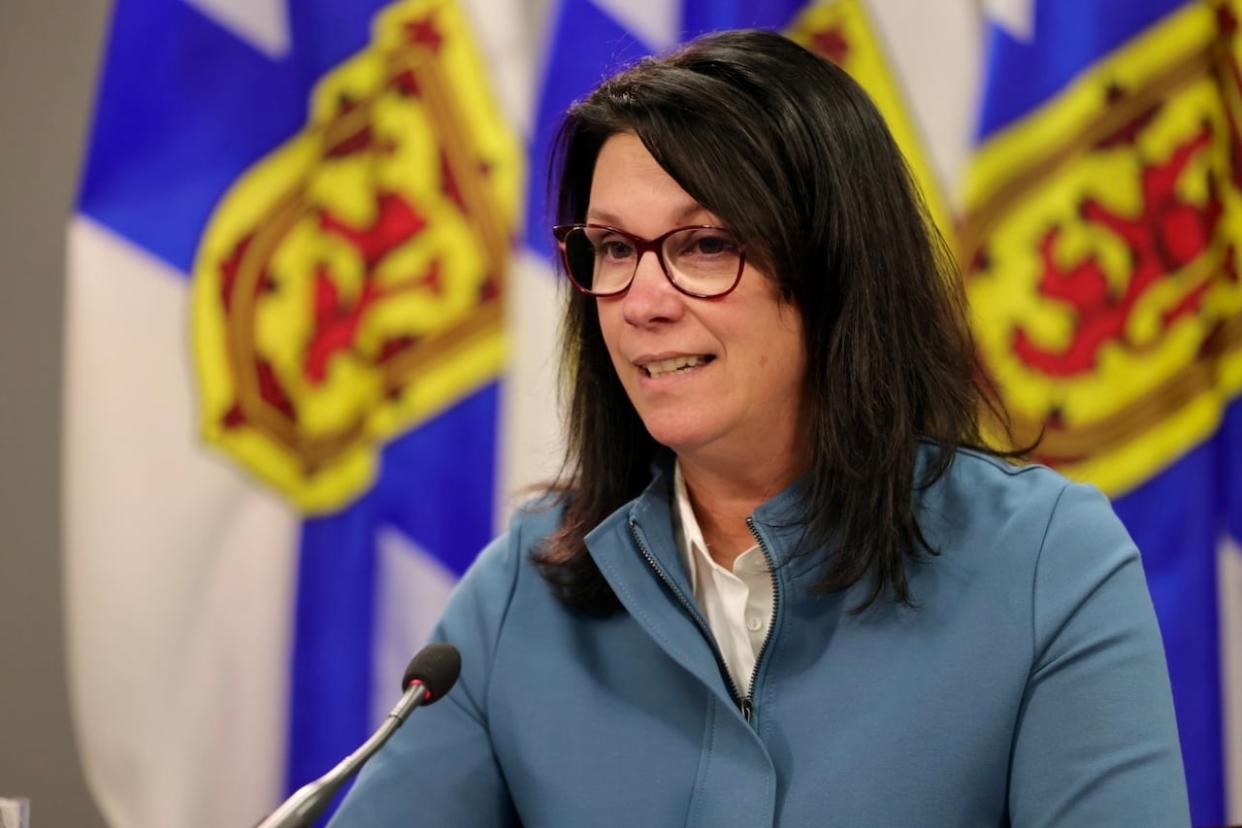Health minister thinks data could take politics out of health care

Nova Scotia's health minister says more and better data about the system could help remove politics from what is traditionally one of the most political subjects in the province.
"I believe that data will immunize health care from the political cycle," Thompson told a lunch crowd at a Halifax Chamber of Commerce event on Wednesday.
"And, as a health-care worker, I can't tell you how important I believe that is."
In an interview with reporters after her remarks, Thompson acknowledged that taking politics out of something that accounts for more than 40 per cent of the provincial budget could be viewed as optimistic, but it's something worth pursuing.
"I do think people are very well meaning in terms of the political platforms but it doesn't always match the ideology, and what people are thinking doesn't always match the experience," she said, adding that she wished there was "more ability to have better conversations across political parties around some of these issues."
Informing decisions
Thompson, who worked as a long-term care administrator and registered nurse before entering politics, said she could recall the challenge of trying to convey issues and concerns to governments of the day without the necessary data.
"I could tell you that patients were becoming more complex, that family systems were becoming more complex, that people were frailer when they came in, but I had no objective way to be able to communicate that.
"And … if you don't have that, then it's your opinion versus someone else's opinion and … that's why I think the data is so important."
Thompson said data collection needs to span all parts of the system, including race-based data, which has started to be collected. That information can then be used to make decisions about where to direct resources, how to spend money and what issues are most pressing.
The minister used her speech to highlight areas where she thinks the government is making progress on health care, including expanding the scope of practice for health-care professionals and introducing new pathways to care through things such as pharmacy clinics, an expansion of virtual care and expanding the use of technology.
Work on health homes continues
At a time when the province's need-a-family-practice registry is at an all-time high of more than 157,000 people, Thompson said the focus remains on trying to get people paired with primary care options.
One of the government's aims is increasing attachment by matching people with "health homes," a collection of a variety of health-care professionals a patient would be directed to based on their need at the time.
A limiting factor in setting up and expanding that option is the province's ability to recruit and retain enough people to staff the teams. In another nod to the complexity of the issue, Thompson said there could be situations where members of a health home are not all in the same location, but are in close proximity.
She used the example of a doctor and pharmacist in a rural community who don't work out of the same location but are in regular contact about patient needs and care.
"We may never co-locate those folks, but it doesn't mean the collaboration doesn't happen for particular patients that require both pharmacy and medicine."
MORE TOP STORIES


